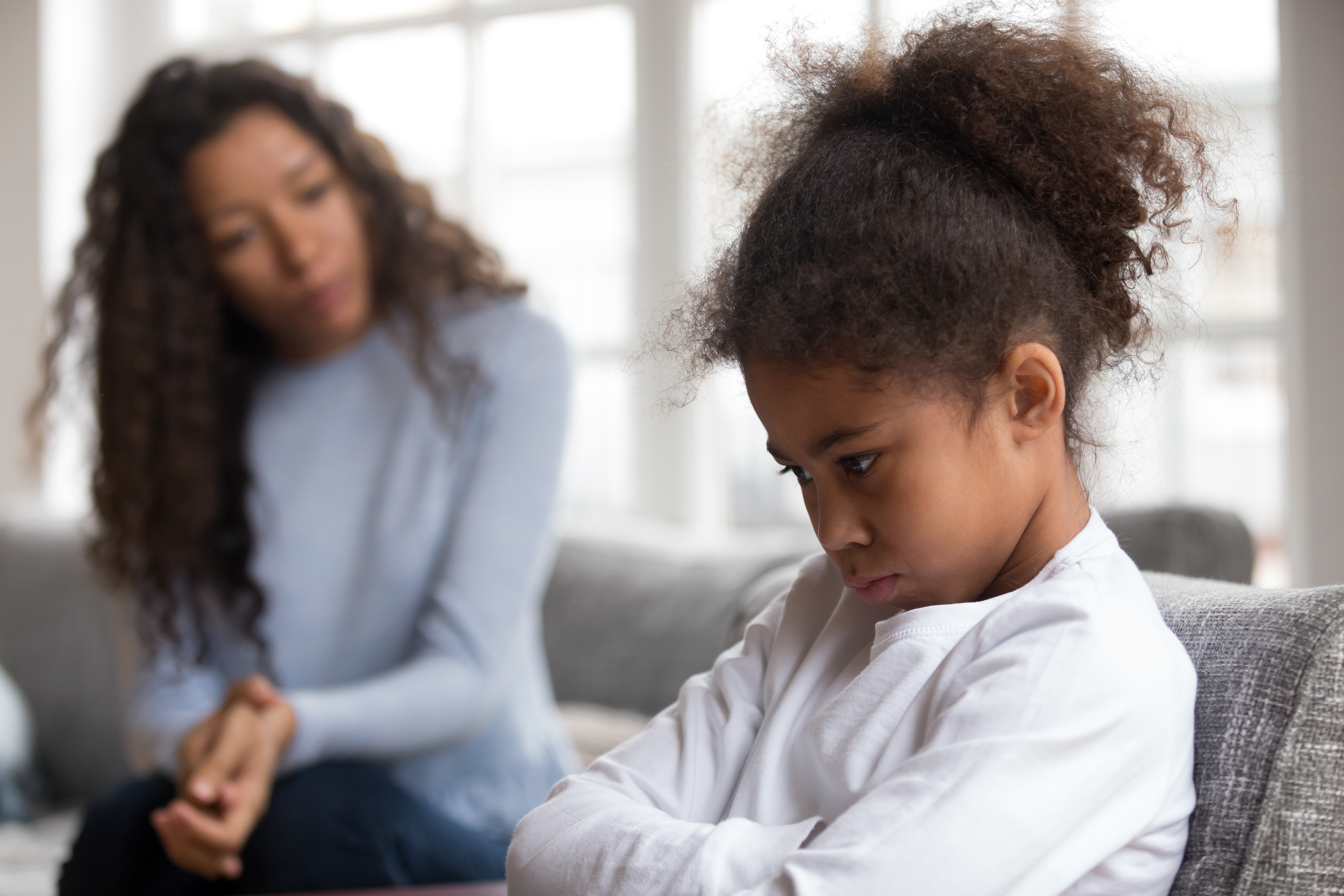Over the last few years, we’ve been learning a lot about mental health and the importance of the mental/emotional well-being of both ourselves and our children. Gone are the days of the ideas that children should be seen and not heard, that you can spoil an infant, and of using a firm hand to discipline temper tantrums. There have been leaps in the research of infant mental health, teaching us a new way to understand our babies and children.
One key piece that we feel is significant to understand is the importance of allowing our children the opportunity to express themselves, while acknowledging their feelings through listening. As simple as it sounds, listening can actually be one of the hardest parts of our parenting job.
Recognizing when we may not be listening
Do any of these sound familiar?
- “You’re fine”
- “Brush yourself off and get up”
- “There is absolutely no reason for you to be crying right now”
- “Here, take this and go play”
How many times have we told our children that they are fine, to stop crying and to brush it off? Those statements probably don’t sound like a big deal. Everyone says them and most of us were probably told the same thing. Our parents didn't tolerate temper tantrums and hysteria after hurting ourselves and we grew up to be just fine, right?
Not always!
Those three, five or ten words can be more hurtful than the fall, tumble, or scrape itself. When we disregard the way our children feel, we are telling them that their feelings do not matter. We are essentially teaching them how to swallow those feelings and ignore them. A child who is taught to ignore their feelings, whether it’s upset, frustration, fright, or any other emotion, grows up not knowing how to express themselves to the ones they care about most.

How would it feel for you?
Now, let’s turn it around for a second. Let’s think of it this way — you’ve had an awful day. Your partner has been at work all day, the baby has been miserable, the vacuum broke, you have spit up in your hair from who knows when, dinner is burnt, and you are done. You know that feeling of being overwhelmed, exhausted, and just needing to talk to someone? Not to fix the problem but to have someone listen to you. In walks your partner, and you hand the baby over and start venting. They listen, acknowledge how you are feeling and give you the support you need at the moment. Feels good right?
Now, imagine your partner turns to you and says, “Bah, that’s not a big deal — you’re fine. Tomorrow will be better, just don’t think about it.”
What do you do with that? Do you walk away feeling defeated and misunderstood? Do you vent louder to try and get their attention? Or do you get angry?
Cultivating the opportunities for connection
What does your child do when you tell him he’s fine after falling off of the couch and landing not so gently on his arm? Does he have a broken limb? Probably not. Is he bleeding? Nope. Is he scared and needing that feeling of being acknowledged by the one or two people he cares about the most? YES! I get it, they fall and hurt themselves a lot, but sometimes the upset from the fall isn’t the only feeling that needs to be recognized. It’s the feelings of frustration when they are learning to walk and keep falling down. It’s the feelings of anxiety when they are in a room full of people they don’t know. It’s the upset from a thunderstorm that they need acknowledged.
Getting down to their level, making eye contact and saying something as simple as “Buddy, are you okay? I saw that fall, that must have been scary.” Or, “I see you working so hard trying to kick the ball in the net. It must be pretty frustrating for you.” It can be as simple as that.

Not only does helping them understand and label their feelings create a sense of security between you and your child, it can go a long way in shortening the emotional upset.
Responding vs rewarding
When you are preparing dinner and you have a little one that is upset for one reason or another, taking five minutes to sit, cuddle, or read a book can actually help them start to feel better and calm them. This then allows you to finish dinner without a screaming child underfoot.
I know there are probably some of you thinking, “Okay, but if my child is having a temper tantrum or being miserable, am I not ‘rewarding’ him by sitting with him and cuddling him and giving him the attention he wants?”
Fair question. Here’s why it isn’t "rewarding" them as much as establishing their sense of self and understanding that their feelings matter. Think of your child as a cup and your love as filling that cup. They go off and play and come back to you for a quick hug or even a glance around until they spot you and then continue playing. They are filling their cup. A child that is upset needs the same reassurance and filling of their cup but in a bigger dose than just a quick hug or glance. Some days they need a little more, some days they need less. By taking those five or ten minutes to fill your child’s cup, especially at the end of a busy day, you can actually help make the rest of dinner time a lot more enjoyable for everyone.
Bedtime bonding
Another great opportunity to take a few minutes with your child and let them express themselves is right before bed. Include chat time into the bedtime routine and actively listen. Try not to solve their problems, change the subject or ask too many questions. Let them talk and just listen. You’d be surprised how much is revealed in those 10-15 minutes before bed. Spending those few minutes chatting before bed can also help your child sleep better at night. Allowing them the chance to offload the day’s events will help them fall asleep faster and sleep more soundly.

The importance of being heard
Why does teaching our children the importance of their feelings and being heard matter down the road? When you teach a toddler that you will take the time to listen to them they will turn to you in preschool with the same needs. A preschooler who knows mom and dad will listen then turns into a pre-teen who is comfortable approaching you with bigger issues. From that preteen, you now have a teenager who is secure in their connection with you and will turn to you for advice and help rather than their friends or Google! Choosing this response sets you up to have a relationship with your children that is based on trust, understanding and unconditional love, regardless of what they are going through. That is what most of us parents want in the end, isn't it?









